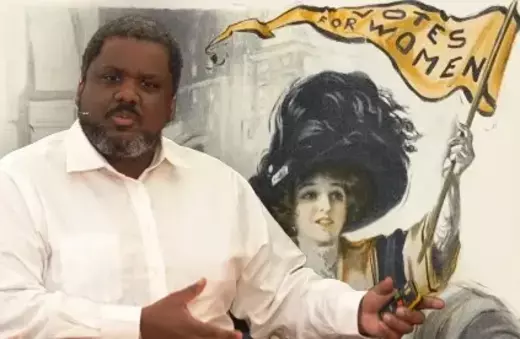Highlights:
Among the problems in the Le Monde - #MeToo debate is that ‘#MeToo feminism’ does not have a manifesto, and that social media exacerbates reckless formulations.
French and American feminist traditions, outlining sex-positive attitudes, are more intertwined than is currently admitted in the Deneuve-Hollywood controversy.
Recognizing women’s freedom is “not to eliminate poetry, love, adventure, happiness, and dreams: it is only to ask that behavior, feelings, and passion be founded upon the truth."
Last week’s #MeToo backlash defending men’s ‘right to bother’ women has provoked a series of reactions from feminists and cultural critics.
The much-discussed letter in Le Monde was written with lamentably incendiary prose and regrettably little nuance or compassion for those who have had reason to post #MeToo.
Deneuve’s apology to victims of ‘heinous acts’ in Liberation on Sunday has brought further comment, including the claim by Anastasio Colosimo (of Sciences Po, Paris), that the pushback against #MeToo “could only happen in France”.[1]
Comment pieces have attributed this debate to cultural or generational differences in feminism, despite the fact that the letter was signed by millennials and its initiator was born in Tehran. But nationality and age are red herrings.
They distract us from more profitable questions, questions like: What would it take for #MeToo to go too far? Why do some suspect it of doing so? The usual misgivings cite the conflation of very different types of action, the consequences of false allegations, the possibility that #MeToo deprives women of agency by casting them as victims, or the introduction of fear into relationships between the sexes. The French letter raised all of these concerns, claiming moreover that #MeToo feminism is puritanical, anti-men and anti-sex.
Among the problems afflicting this conversation is that ‘#MeToo feminism’ does not have a manifesto, and that social media exacerbates the tendency of human beings not to parse their opinions carefully. But one conflation that has plagued feminism for too long is that disliking abuse by men or unjust social structures commits one to antagonism towards men or sex. It is a non sequitur to claim that American feminism in general or #MeToo in particular are committed to such views.[2]
___
"The feeling of harassment is all-too-familiar to many women. It gives the charge that #MeToo has introduced fear into the relationship between the sexes a dispiriting irony: was there ever not?"
___
The English-speaking world has been debating ‘sex-positive’ feminism for several decades, often in dialogue with French voices. Sex-positive thinking has developed along two major lines. One tendency has criticized restrictions on women’s sexual behaviour, condemning the high costs imposed on them for being sexually active. This line of feminist work called for a sexual liberation that would work for both women and men. The other line has tended to consider sexual liberation as an extension of male privilege. Some take this latter tradition to resonate with conservative, anti-sexual discourse.[3]
It is understandable that #MeToo could be viewed in this light: many of the men against whom the most famous allegations have been made are highly privileged with plenty of power to abuse.
But to object to male privilege or entitlement is not to object to men or to sex. And neither is it, as the Le Monde letter rhetorically claimed, to “put women in chains, in the status of eternal victim”.





















Join the conversation